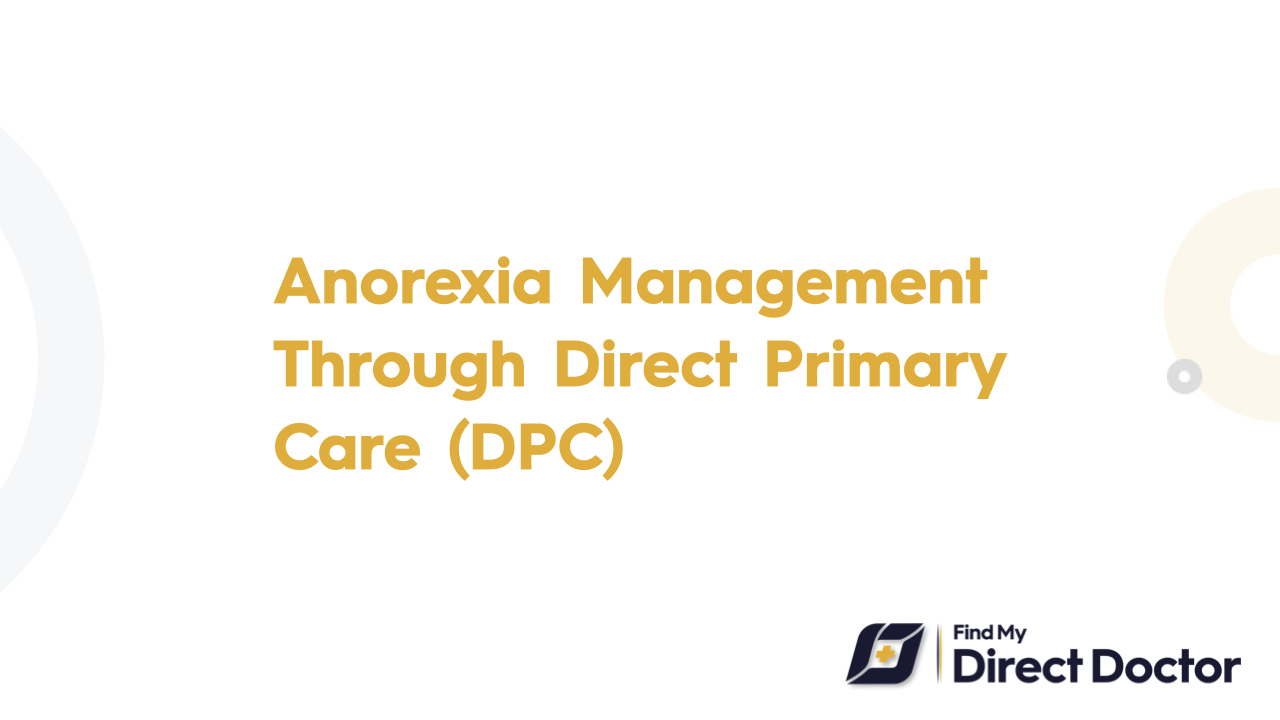Anorexia and Direct Primary Care (DPC): A Compassionate, Coordinated Approach to Recovery
The complex eating disorder known as anorexia nervosa, which calls for a multimodal treatment approach including medical, psychological, and nutritional support, is defined by extreme food restriction, weight gain anxiety, and a distorted self-image. By means of tailored treatment, continuity, and enhanced access to resources, Direct Primary Care (DPC) presents a patient-centered model that helps control anorexia.

How DPC Enhances Anorexia Control
- Regular check-ins: Track weight, BMI, vital signs (heart rate, blood pressure), and lab results (electrolytes, thyroid function)
- Early detection: Identify complications like cardiac issues or malnutrition for prompt intervention
- Central coordination: Streamline referrals to therapists, dietitians, and psychiatrists to ensure consistent treatment goals
- Reduced fragmentation: Address the limitations of traditional care models
Extended, Unhurried Visits
- Holistic focus: Address psychological and physical aspects of anorexia during extended appointments
- Trust-building: Discuss challenges, progress, and setbacks without time constraints
- Collaborative care: Combine weekly medical visits with cognitive-behavioral therapy (CBT) for comprehensive progress tracking
Tailored Support for Patients
- Custom meal plans: Gradual weight restoration goals and anxiety coping strategies
- Increased autonomy: Adjust care plans as patients progress
- Confidence-building: Regular interaction with one provider reduces shame/resistance and improves adherence
- Flexible scheduling: Same-day visits for acute crises (e.g., severe bradycardia) or relapses
- Family-based therapy (FBT): Train caregivers in meal support and communication skills
Nutritional Rehabilitation
- Dietitian collaboration: Create nutrient-rich meal plans that respect dietary restrictions and psychological barriers
- Calorie adjustments: Modify intake during regular visits to address food-related anxiety
- Relapse prevention: Detect early signs (e.g., calorie fixation) and adjust therapies proactively
Transparent, Affordable Care
- Flat monthly fee: Eliminates surprise costs for frequent visits
- Long-term affordability: Critical for managing anorexia’s chronic nature
Why DPC Is Transformative for Anorexia Treatment
- Integrated tracking: Monitor mental/physical health (BMI, electrolytes) in one place
- Multidisciplinary coordination: Easy scheduling with therapists, dietitians, and specialists
- Stigma reduction: Foster openness and early intervention in a judgment-free environment
Challenges and Considerations
- Severe cases: May still require inpatient specialized treatment; DPC coordinates seamless transitions to eating disorder clinics
- Provider training: Continuous professional development for PCPs is critical for effective care
Conclusion
Direct Primary Care provides an accessible, affordable framework combining medical vigilance, psychological support, and tailored treatment for anorexia recovery. By building trust, removing obstacles, and prioritizing whole health, DPC empowers patients to reclaim their lives boldly.






